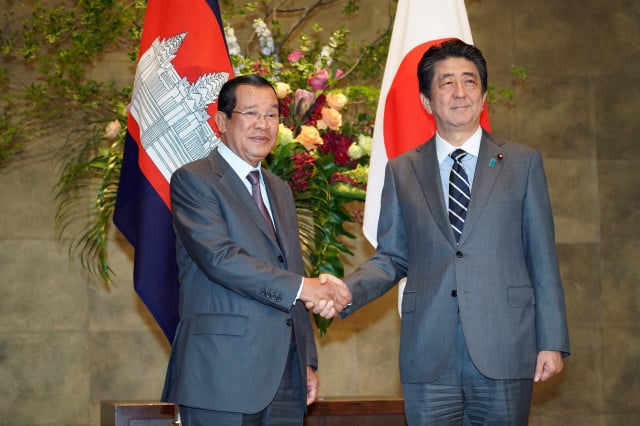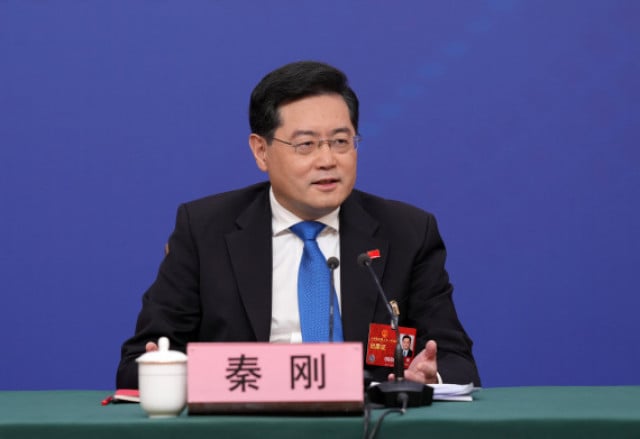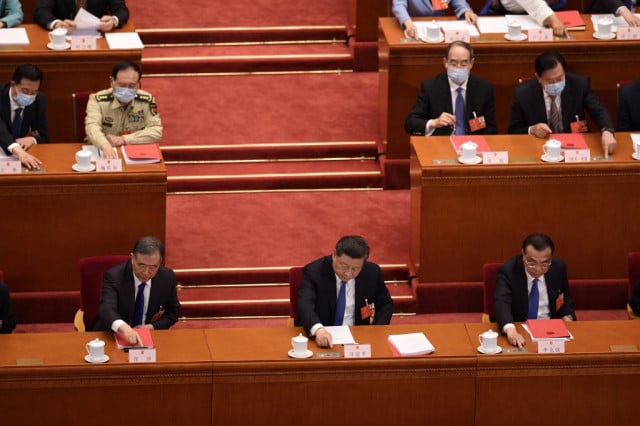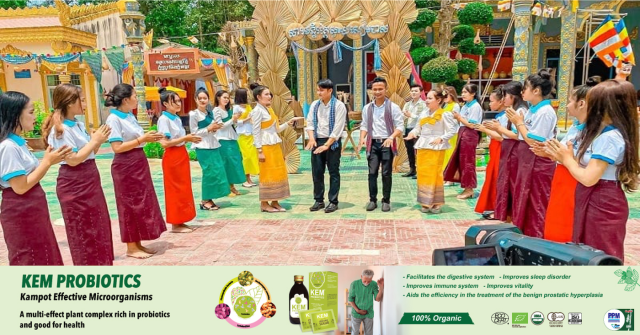Being Part of the LGBTQ+ Community in Cambodia: Progress Made and Challenges to Face
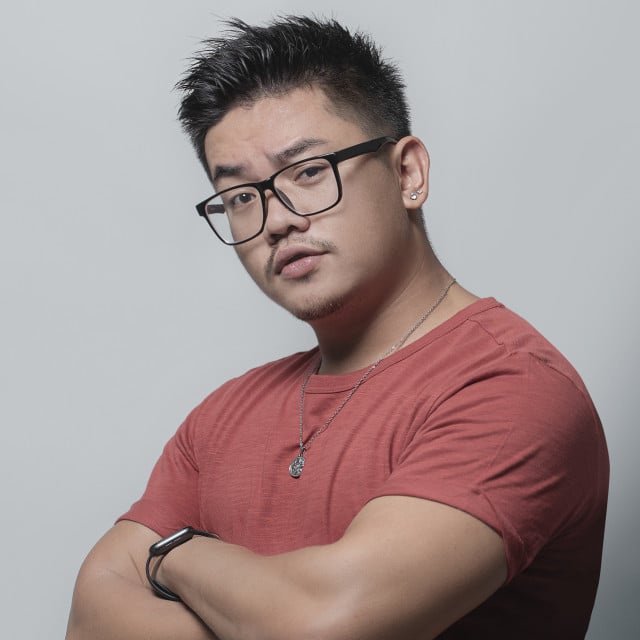
- By Sao Phal Niseiy
- July 11, 2021 5:19 PM
At the personal level, this must start with a person accepting and loving who he/she is, says community leader Nou Vichet
Nou Vichet is a founder of the group I AM WHAT I AM Pride Cambodia, which has been representing the LGBTQ+ (LGBTQ+ stands for lesbian, gay, bisexual, transgender, queer and/or questioning) community in the country. Currently managing partner and chief design director of the agency Kouprey Creative Solutions in Phnom Penh, he was recently interviewed by Sao Phal Niseiy, journalist at Cambodianess.com.
Sao Phal Niseiy: First of all, would you please share with us how you feel being an LGBTQ+ person in Cambodia?
Nou Vichet: To be honest, being an LGBTQ+ in Cambodia is quite okay with me. This might not be the best place in the world, but it’s also not the worst. We may not have legal marriage for LGBTQ+ but it's also not illegal to be one. Plus, during Pride Week, we always get some support messages from the government, which is a good thing.
Sao Phal Niseiy: I have spoken to some human rights observers and I also have personally seen that the perception of LGBTQ+ individuals is starting to change for the better with our society being more accepting of LGBTQ+. What do you think?
Nou Vichet: In particular, I have seen that the new generation is starting to understand who are LGBTQ+ people and to accept them the way they are. There are some people who don't understand and some who are not willing to understand, but it's okay as long as they don't give us trouble.
Sao Phal Niseiy: Speaking of the improvement in the acceptance of the LGBTQ+ community here, would you share with us your concerns regarding the risks or challenges that LGBTQ+ people still face, taking into account the social stigma that may lead to cultural or economic barriers?
Nou Vichet: What concerns me the most about LGBTQ+s in Cambodia is how people can learn to accept themselves. Of course, there are a lot of steps to work on but self-acceptance is the most important thing. I can see that society nowadays is not as discriminatory against the LGBTQ+ community as it was in the past. But still, there are many people who are not ready to accept themselves for who they are and learn to fight for what they love and believe. A lot of influential or high-profile LGBTQ+ people in Cambodia still believe that they could be at risk of having their public positions downgraded and disvalued if they stop hiding and come out with their real identity.
But in fact, I think we really do need some of those people to lead the way, to prove that LGBTQ+ people can also have good jobs as well as to be role models for other LGBTQ+s to look up to. Regarding culture and tradition [in Cambodia], we don't have anything that encourages us to dislike or be against LGBTQ+ people, and I believe this is a big advantage for them here.
Sao Phal Niseiy: In your opinion, what more can be done to promote and protect LGBTQ+s’ rights and address the challenges given that the role of individuals, civil societies and the government are equally important?
Nou Vichet: There are some organizations that are currently working closely with the government to advocate and promote LGBTQ+ rights in schools, and this is a great help. There are a lot of LGBTQ+ students who decide to drop out of school because they can't be themselves…This continues to prevent them from having the chance to pursue higher education and get better jobs. But let's see how this situation will turn out.
The same thing should be promoted in the workplace because we need people to learn more about gender equality and accept LGBTQ+ people for who they are. Some companies may lose talent just because they don't accept their staff members as they are [and this may] block all the positivity and creativity, which could help companies grow.
Moreover, the media may have the most important role to play. We need the media as well to support and imprint good images of LGBTQ+ people in our society. From year to year, we continue to see bad images or just jokes around LGBTQ+s on television, in shows and so on. They should know that the media play a big role in shaping people’s perception and whether to love or hate LGBTQ+ people. So, we need to see some good things about LGBTQ+s being told as well.
Sao Phal Niseiy: Many LGBTQ+ people have been willing to come out and speak up for their rights. But others still remain hesitant to speak as they fear bullying or other forms of discrimination. What is your message to them to encourage them to speak up for themselves and others?
Nou Vichet: LOVE YOURSELF RIGHT, ACCEPT WHO YOU ARE! You don't have to come out right away if you're not ready. Take the time to know yourself, love yourself, accept yourself because coming out could be the most beautiful thing in the world. But it also could really bring you down if you're not emotionally ready for it. But remember that there is a lot of people out there who have been going through what you're going through. This means you're not alone. It is important for you to find the right support, and this could be from your family members or friends and, surprisingly, sometimes it could be from a stranger.
Sao Phal Niseiy: Further change in people’s perception and attitude in Cambodia will surely require more education and knowledge. So, do you have any future plans to sustain the campaign and for activities to raise awareness about LGBTQ+s that could eventually contribute to the promotion of LGBTQ+s’ rights?
Nou Vichet: As a founder of the I AM WHAT I AM Pride Week, I always have a fire burning in me about LGBTQ+. I might not have much time and many people to work with to carry out campaigns and awareness-raising activities on LGBTQ+, but I will help in any way I can. Right now, I just created a club in the clubhouse called Cambodia LGBTQ+ Network, where I host talks sometimes to discuss LGBTQ+ related issues. And I hope there will be more than just one big main event per year, which is Pride Month, for the LGBTQ+ community here.






